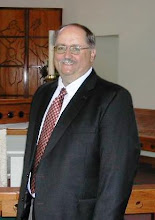The way we talk is strange, isn’t it? I don’t mean our particular accents or twangs; I’m referring to the English language in general. American English, that is.
Think about it. If we have more than one mouse, we have mice. More than one louse is lice. But no realtor ever lists several hice on the market; the listings are for houses. Elizabeth Taylor and Zsa Zsa Gabor had spouses, not spice. Well, maybe they also had some spice in their lives!
If we see more than one deer, we’ve still seen deer, but drink more than one beer and that’s beers.
A second pan gives us pans, but a second man certainly doesn’t give us mans. Seeing a goose and his pals provides a vision of geese. More than one moose, though, is still moose, not meese.
In a restaurant, we sit in a booth among booths but we don’t chew with our tooths; we use teeth.
What about those words that end with us? Campus becomes campuses, virus becomes viruses, yet the plural of cactus is cacti. So, what about octopus? Apparently that’s a bit more difficult. In fact, there are three choices: octopi, octopuses, and octopodes. At least, that’s what I’m told. I never plan to see more than one at a time anyway.
Pronunciations can be as troubling as plurals. Consider the many common words that have different pronunciations and meanings. Lead and read may each be pronounced two ways – with long e sounds and with short e sounds. Adding to the confusion are led and red.
Look at the word beta. It’s pronounced bay-tuh. Don’t ever go to a store or restaurant, however, and ask for fay-tuh cheese. That’s not the way to say feta. It’s fet-uh.
No doubt, language is interesting and not always easy. As I sit at the computer, typing away, I wonder: If I get a new mouse for my computer, do I have computer mice or computer mouses?
Copyright 2008 - Sherry Shealy Martschink
skip to main |
skip to sidebar















Daughter Mandy Martschink Brantley with her husband, Adam; son, Tree Martschink; daughter Tiffany Martschink.

Tiffany, Tree & Mandy

Tree, Sherry, Mandy & Tiffany - Years ago after the Reindeer Run

Facebook Badge






Our Other Blogs
Copyrighted

Autism Awareness

The Ribbons of Cancer


MOST POPULAR POSTS. Click below to check 'em out!
SEE MOM RUN ---- Click here to get your copy!!!
Great gift for moms, grandmoms, moms-to-be, teachers, co-workers, friends.Click the picture to order.
* * * * * * * * * * * * * * * * * * * * * *

Sherry served in the SC House of Representatives, the SC State Senate, on a local school board and was SC Workers' Compensation Commissioner for 12 years. Law School Graduate. Certificate in International Commercial Arbitration.
Wife of Karl J. Duppstadt a/k/a The Duppster or Dupp; mom of 3, grandmom of 2, step-mom of 4, step-grandmom of 1.
Co-owner, The Dupp Group: Earth Mover Press, Kudzu Keepsakes and Spitting Images Gallery.
Inspirational/humorous speaker. Author/Writer/Columnist. Consultant/mediator/pianist.
Other Odds ‘n Ends: She was a guest on “To Tell the Truth” and on “What’s My Line?” and was interviewed by Barbara Walters and Joe Garagiola on NBC’s “Today” Show. She and her family appeared twice on “Family Feud.” They lost both times, but, yes, she got a kiss from Richard Dawson.
Wife of Karl J. Duppstadt a/k/a The Duppster or Dupp; mom of 3, grandmom of 2, step-mom of 4, step-grandmom of 1.
Co-owner, The Dupp Group: Earth Mover Press, Kudzu Keepsakes and Spitting Images Gallery.
Inspirational/humorous speaker. Author/Writer/Columnist. Consultant/mediator/pianist.
Other Odds ‘n Ends: She was a guest on “To Tell the Truth” and on “What’s My Line?” and was interviewed by Barbara Walters and Joe Garagiola on NBC’s “Today” Show. She and her family appeared twice on “Family Feud.” They lost both times, but, yes, she got a kiss from Richard Dawson.
Grandson Harrison

Grandson Fisher

Copyright 2008 - 2014. EX Marks the Spot. All rights reserved. Republication or redistribution of content, text or image without prior written consent is strictly prohibited.
Odds 'n Ends
The Duppster

Blogs I Like to Read
The People Who Survived Having Me as a Mother

Daughter Mandy Martschink Brantley with her husband, Adam; son, Tree Martschink; daughter Tiffany Martschink.

Tiffany, Tree & Mandy

Tree, Sherry, Mandy & Tiffany - Years ago after the Reindeer Run
Friendly Followers -- and SO Appreciated!!!! Thanks, Y'all!
More Followers - Also Appreciated!
Look Who's Here Today

This site was recently updated by oxymoron13@aol.com







No comments:
Post a Comment